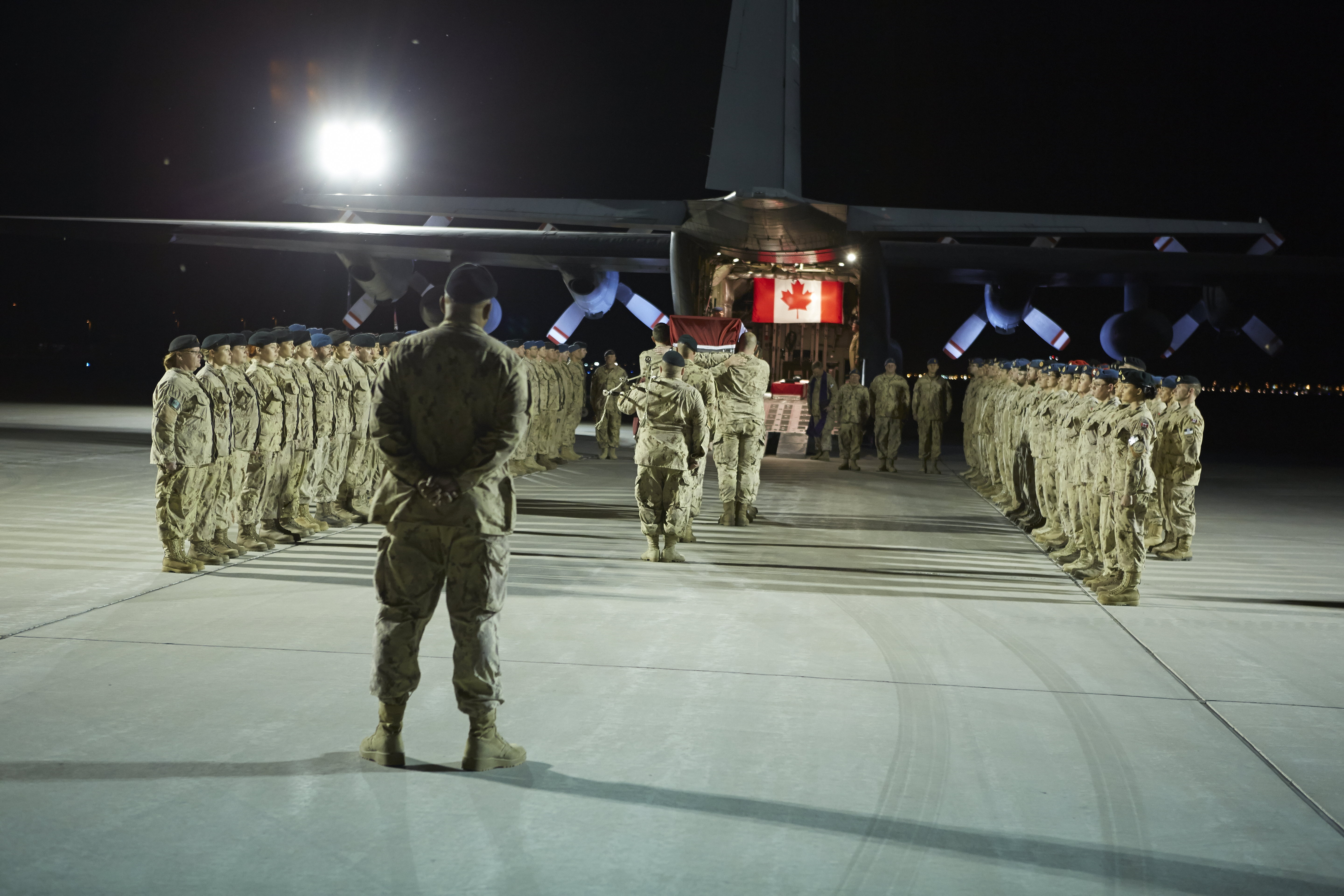The Perils of Independent Film
A review of Canadian drama Hyena Road
On March 15, the Cinema Studies Institute held a special screening of Paul Gross’ 2015 film Hyena Road. Gross is best known for his roles in TV shows Due South and Slings and Arrows, or for his 2008 film Passchendaele. Like Passchendaele, Hyena Road is a war film about Canadian soldiers that is both written and directed by, and starring the aforementioned filmmaker. This time, instead of focusing on the muddy trenches of World War I, Gross opted to explore the world of Canadian snipers in Afghanistan. This was an ambitious task that was incredibly difficult to realize, even according to Gross himself, who joined us after the screening for a Q&A period.
From the beginning of the film, it is clear that everyone involved went to great lengths to do the subject matter justice. The set design appears very authentic, costumes are meticulously crafted, and the soldiers speak in undecipherable military jargon that contributes to a very realistic aesthetic. The decision to shoot on digital somewhat undermines this realism, as the images appear almost too clean and glossy. However, this choice was almost surely made so that Gross, who spent a few weeks in Afghanistan visiting Canadian soldiers prior to filming Hyena Road, could seamlessly switch between real footage taken in Afghanistan and recreated narrative footage filmed later. Nevertheless, it is my thought that a more tactile format would have benefited the gritty tone of the film. The incredibly crisp digital images hurt the otherwise wonderfully realized battle zones by making everything appear somewhat cheap.
The interesting worldbuilding and set pieces are unfortunately also let down by bad acting across the board. With the exceptions of Christine Horne and Gross himself, the dramatic performances in the film range from slightly unbelievable to downright terrible. A certain scene in which a soldier explodes in a fit of anger is so excruciatingly over-acted that the second-hand embarrassment is almost painful. Not all the blame can be put on the actors however, as certain moments in the script would be hard to save, regardless of talent. Likewise, even the strongest of actors wouldn’t have been able to bring life to some of the one-dimensional characters in this film, which seem to have been drawn from the same pool of archetypes as every other war film ever made.
However, my biggest gripe thus far was the inclusion of a wooden romantic subplot that develops between the lead sniper Ryan (Rossif Sutherland) and his commanding officer Jennifer (Christine Horne). The two have little to no chemistry, and anything they could muster was only through the talents of Horne, as Sutherland barely has enough charisma to give his already lifeless character a heartbeat. What’s more, the romance feels cheaply tacked on, merely to trick the audience into caring about Ryan’s fate during the climactic sequence of the film. It is emotional manipulation akin to a Disney animated film, and it just seems lazy.
All of this being said, the film does a number of things well. Its shortcomings in the acting department should be forgiven in part, since it is an independent production shot on a shoestring budget. Hyena Road was a passion project with great ambition, and while it doesn’t accomplish everything it aims for, Gross’ interest in the subject matter really shows. It was clear from the Q&A period after the film that he really cared about this story, and that he went to great lengths to make sure the technical details were right. Also, there are several modern war films set in Afghanistan that neglect the voices of those who actually live there. Gross made an effort to include Afghani people in his film, and this is something that should be commended.
Ultimately what we are left with is a very technically proficient and ambitious film that just fails to deliver. The letdowns in the acting department and the lack of developed or interesting characters turn what had the potential to be a truly compelling story into a derivative and tensionless affair. The film is by no means bad, and one of its great successes is that those involved clearly cared about the story they were telling. That being said, it just makes it that much more disappointing that they didn’t quite hit their mark.
